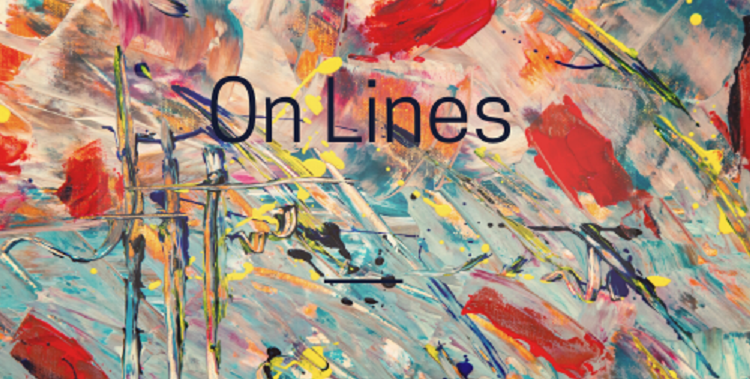Albus McInerney edits a literary magazine.
The latest editorial meeting began in somewhat sombre mood – understandably, of course, with the pandemic and climate change and problematic politics across the globe. Rami had just given a lecture on the poetry of Octavio Paz, however, which turned out to be an effective if unlikely antidote to current woes.
‘It’s not as though turbulence is new,’ Rami said. ‘The sixties were even more fraught, and what people remember are miniskirts and the Beatles.’
‘And the lesson is?’ Kim asked.
‘Maybe the lesson is that we should be wary of learning lessons,’ Rami said.
‘What do you mean?’ Patrice’s tone bordered on tetchy. From his perch in Hongkong, he is preoccupied with ominous undercurrents in the Chinese body politic.
‘The variables are infinite,’ Rami said. ‘History is unpredictable. Mankind is “the personification of indeterminism”. I think Paz was right about that.’
‘He had certainly seen a thing or two,’ I noted. ‘Spain during the Civil War, Mexico in ’68.’
‘He was also good on climate change,’ Rami said, ‘which was unusual for his time. And when he accepted his Nobel Prize he spoke about how the free market pollutes souls as well as ecosystems. He warned that love and friendship – and people – are being bought and sold like consumer products.’
‘Oh, the free market!’ Patrice said very gloomily. I thought he was going to add something, but he didn’t.
‘The point is,’ Rami said, ‘people can buck the trend. Eras of upheaval, as Paz and others have noted, produce great art, great poetry. Maybe the present age will witness a cultural renaissance.’
‘Oh, Rami!’ Kim said with considerable feeling. ‘That stretches optimism further than it ought to be stretched!’ Being about to vote in Illinois, Kim is acutely attuned to the momentous course setting now underway in the United States.
‘Didn’t Paz and the other Latin Americans opt out a little, though?’ Dimitri asked. ‘Magical realism and such are surely a kind of retreat from everyday experience?’
‘A retreat to things that matter,’ Rami said. ‘He believed that reconnecting with the world is the lifelong pursuit of all human beings, after expulsion from the womb.’
‘That’s not going to fix the present state of things,’ Patrice grumbled.
‘It is and it isn’t, as Paz might have put it,’ Rami said. ‘Art changes nothing and it changes everything. It changes how we understand what happens, even if it doesn’t change what happens.’
‘Tus dedos de agua mojan mi frente, / tus dedos de llama queman mis ojos, / tus dedos de aire abren los parpados del tiempo,’ I said. The lines were from long ago, when I first encountered Octavio Paz’s wistful world of Iberian melancholy. ‘The lover’s fingertips,’ I said, ‘are imagined as water and fire and air – the elements of reality disarticulated and then assembled once again.’
‘Oh dear, but they’re still fingertips,’ Kim said.
‘Esta hora tiene la forma de una pausa / La pausa tiene tu forma / Tu tienes la forma de una fuente / No de agua sino de tiempo,’ I quoted some more Paz, maybe just because I could.
‘Enlighten me,’ Dimitri said.
‘The moment is a pause that assumes the shape of the lover, which in turn is a fountain – a fountain of time.’
Even as I spoke, I grasped the fragility of words in the face of reality, but Rami said, ‘And the man who wrote that was a diplomat. His world was tumultuous, with duelling superpowers and civil unrest at every turn, but he believed, quite rightly, that time spent on metaphysical conundrums is well spent.’
‘It isn’t absolutely satisfactory, though.’ Patrice spoke with a kind of gentle resignation. ‘I’m with Dimitri. There’s a kind of retreat here – a retreat into wishful thinking.’
‘But perhaps it’s enough,’ Rami said. ‘Paz argued that poems are translated into new sensibilities as well as new languages. Poetry is the secret language that allows us to communicate across the things that divide us – culture, ideology, physical distance. It doesn’t solve problems. It’s better than that, it enables us to live; it enables us to love.’
This, I felt, was a bracing conclusion, but I remembered another line by Paz. ‘And in the end,’ I said, ‘desembocamos al silencio.’
‘Albus!’ Kim said, ‘You know very well that none of us will ever be silent!’
‘That’s true,’ Dimitri said.
‘It is,’ Patrice agreed. ‘And when you look at it that way, it does seem less depressing.’
